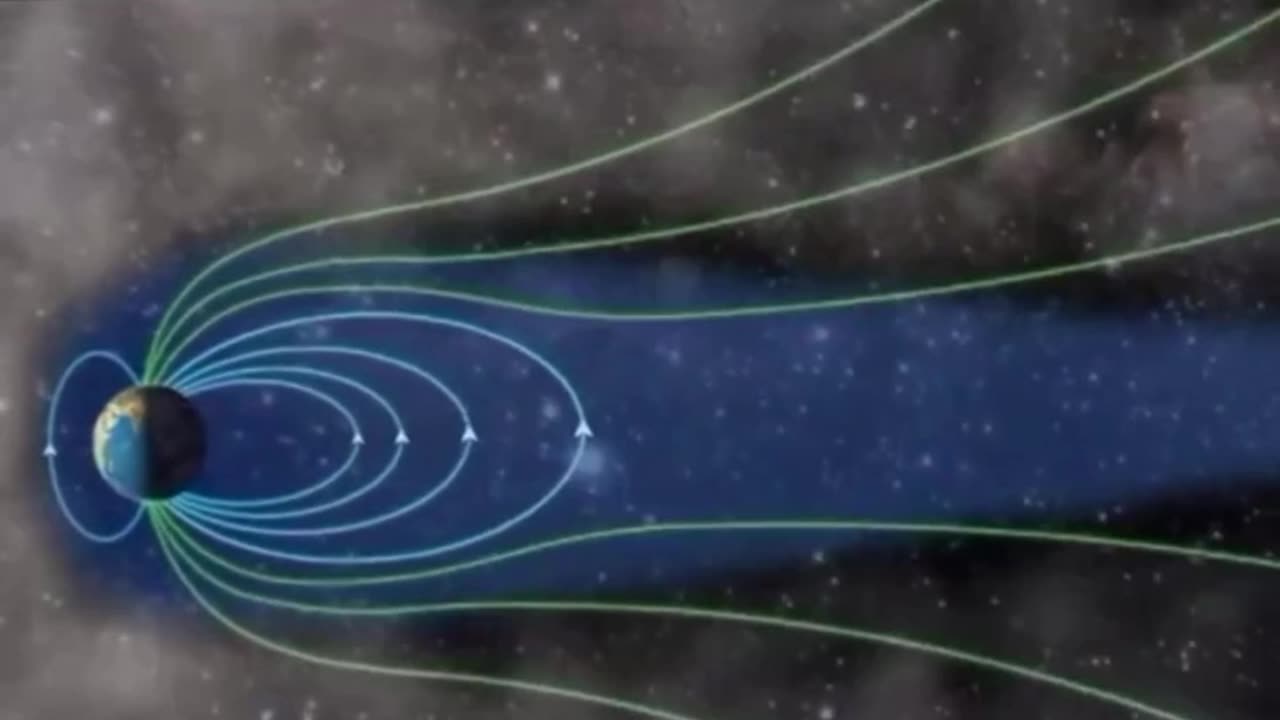Premium Only Content

How different planets react to Solar Storm?
Different planets in our solar system can react differently to solar storms, depending on factors such as their atmosphere, magnetic field, and proximity to the Sun. Here are some general ways in which different planets can be affected:
1. Earth: Solar storms, specifically coronal mass ejections (CMEs) and solar flares, can impact Earth's magnetic field and cause geomagnetic storms. These storms can disrupt radio communications, satellite operations, and power grids. They can also lead to beautiful auroras (Northern and Southern Lights) at high latitudes.
2. Mercury: Mercury has a weak magnetic field and a very thin atmosphere, so its response to solar storms is relatively minimal. However, increased solar activity can cause changes in the planet's exosphere (thin outer atmosphere) and induce temporary magnetic events.
3. Venus: Venus has a thick atmosphere composed mainly of carbon dioxide, which protects it from many direct effects of solar storms. However, fluctuations in the solar wind can lead to disturbances in the planet's ionosphere.
4. Mars: Mars has a very thin atmosphere and a weak magnetic field, so its response to solar storms is limited. However, increased solar activity can affect the planet's ionosphere and cause minor disruptions in communication systems used by robotic rovers.
5. Jupiter: Jupiter has a strong magnetic field, and its intense radiation belts trap charged particles. Solar storms can cause the planet's auroras to brighten and intensify. Jupiter's moon Io, which has active volcanoes, can also experience increased volcanic activity during solar storms.
6. Saturn: Saturn has a strong magnetosphere and displays impressive auroras at its poles. Solar storms can cause these auroras to become more active and dynamic.
7. Uranus and Neptune: These ice giant planets have their own unique magnetic fields and are primarily affected by their internal processes. Solar storms might have limited direct impact on them due to their significant distance from the Sun.
It's important to note that our understanding of how planets react to solar storms is continually evolving, and new discoveries are being made as we gather more data from space missions and observations.
-
 LIVE
LIVE
LadyDesireeMusic
1 hour agoLive Piano Request - Anti Brain Rot - Support Culture Shift
176 watching -
 LIVE
LIVE
The HotSeat
1 hour agoTrump’s Parade = Mocked, China’s Parade = Praised: Leftist Hypocrisy EXPOSED
601 watching -

The Quartering
2 hours agoRFK Jr Goes NUCLEAR, Horrible Tomb Raider News, Anti-White Male Propaganda
70.2K16 -
 LIVE
LIVE
Dr Disrespect
5 hours ago🔴LIVE: Hell Is Us Launch - DR DISRESPECT’s First Look at the Scariest Game of 2025!
1,304 watching -
 LIVE
LIVE
Pop Culture Crisis
2 hours agoSabrina Carpenter Wants Feminist Approval, Demonic Rituals at Burning Man? | Ep. 910
364 watching -
 11:17
11:17
Dr. Nick Zyrowski
29 days agoTop 10 No CARB No SUGAR Foods That Will Change Your Health
9.51K4 -
 LIVE
LIVE
Chrissie Mayr
2 days agoChrissie Mayr's Content Hotel at The Villa Roma! Anthony Cumia, Dave Landau, Violet
69 watching -
![[Ep 741] RFK Jr. Hits Back at Rabid Dems | Portland Antifa Terrorists | The Evil That is the Left](https://1a-1791.com/video/fww1/bb/s8/1/W/U/c/f/WUcfz.0kob-small-Ep-741-RFK-Jr.-Hits-Back-at.jpg) LIVE
LIVE
The Nunn Report - w/ Dan Nunn
1 hour ago[Ep 741] RFK Jr. Hits Back at Rabid Dems | Portland Antifa Terrorists | The Evil That is the Left
149 watching -
 1:52:45
1:52:45
John Burk
3 hours agoThe Texas Hemp ban, DOJ removing guns from trans, and more.
6.4K3 -
 1:05:37
1:05:37
LindellTV
2 hours agoMike Lindell Debates Democrats in the Streets of DC
14.5K2